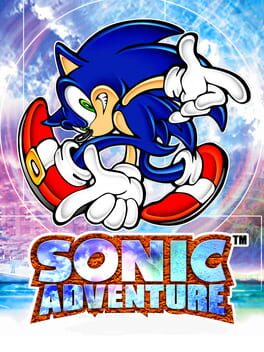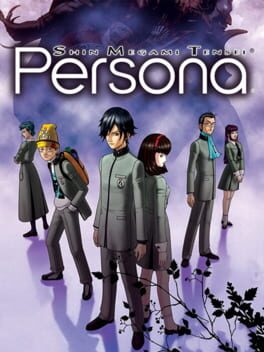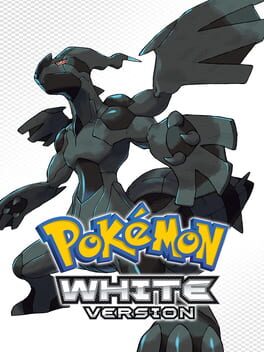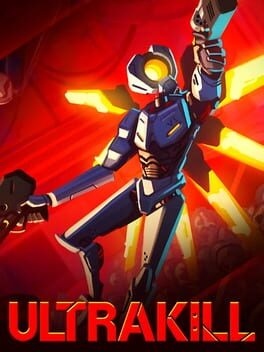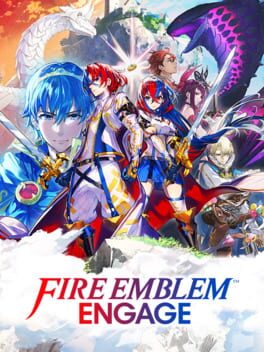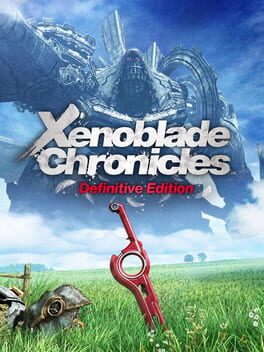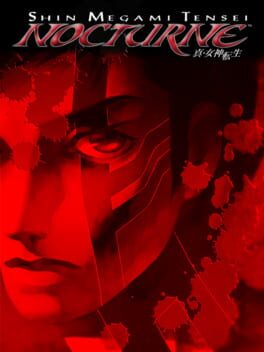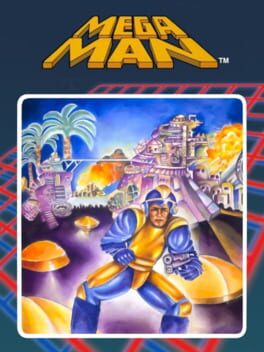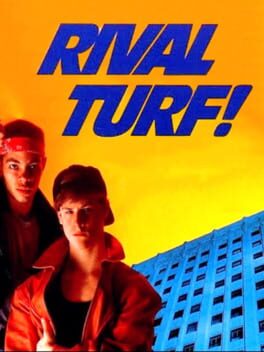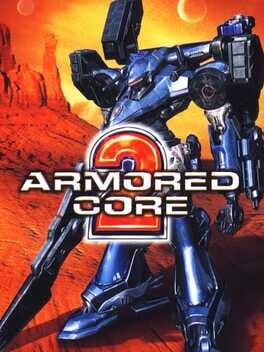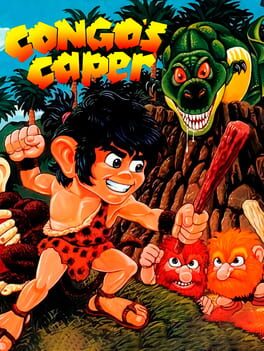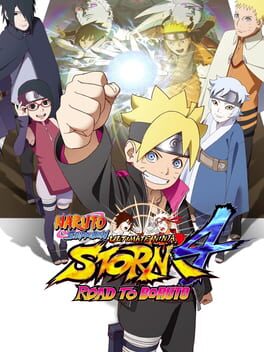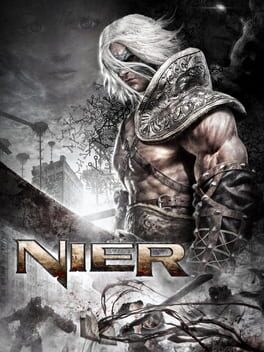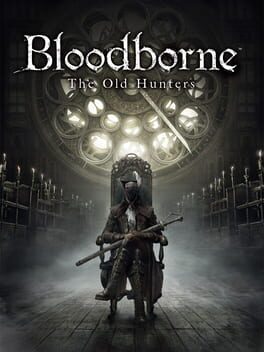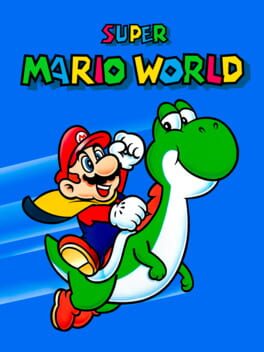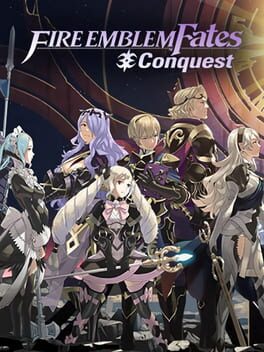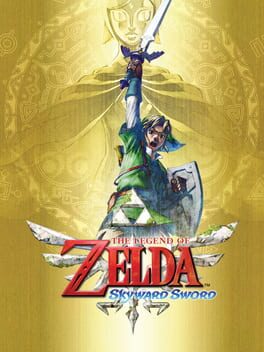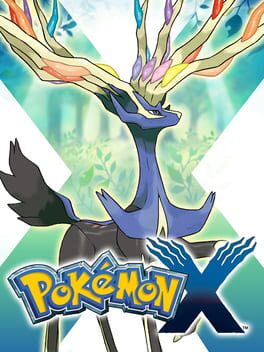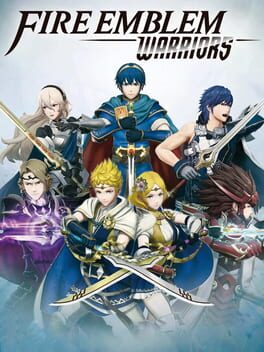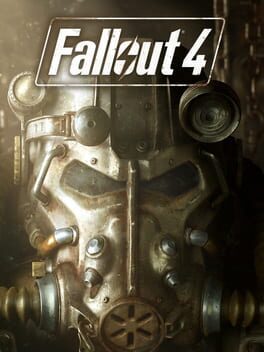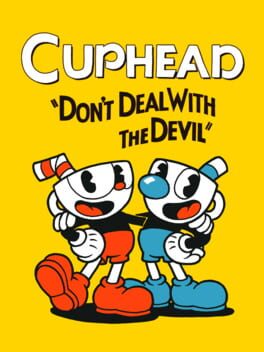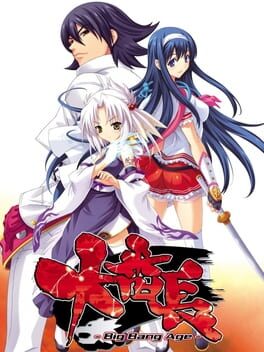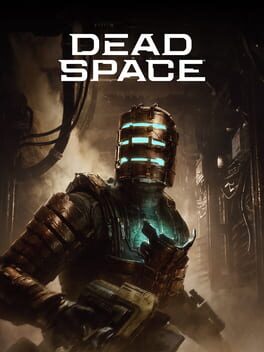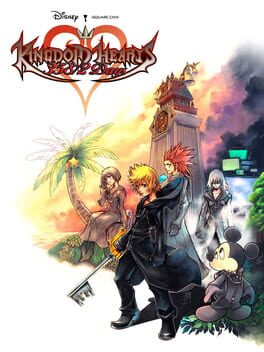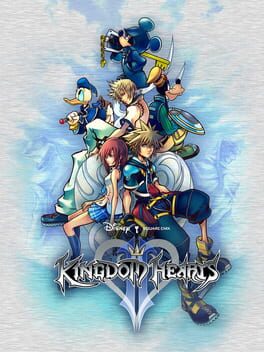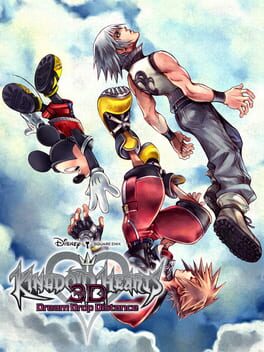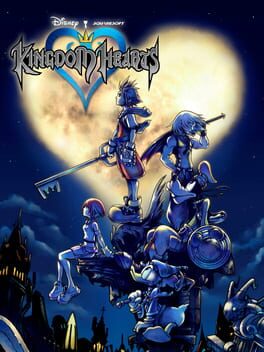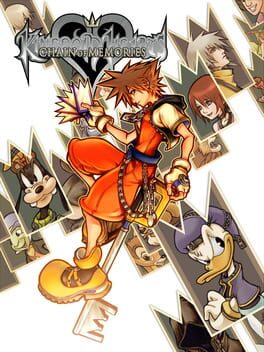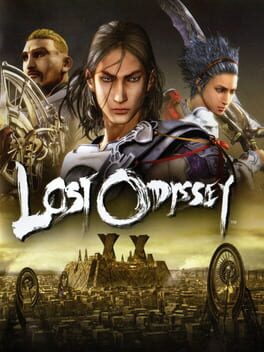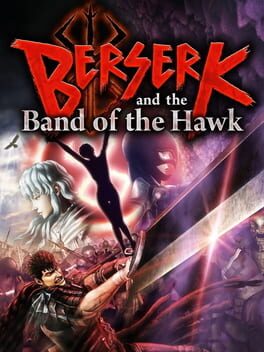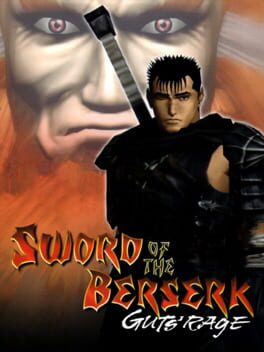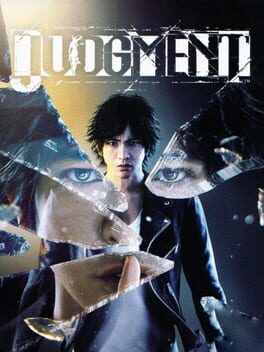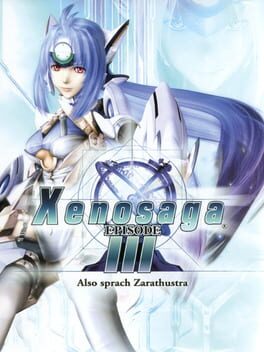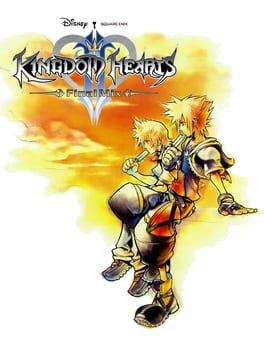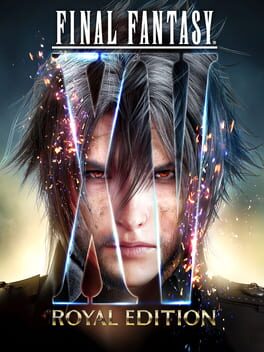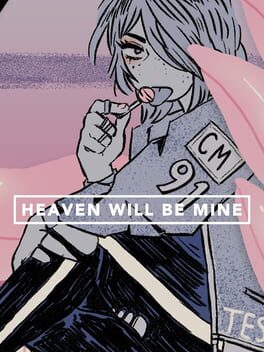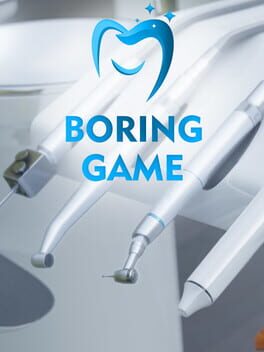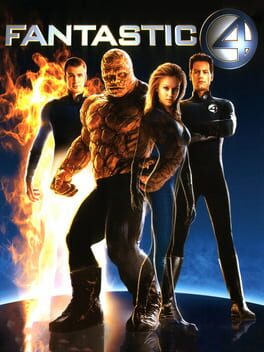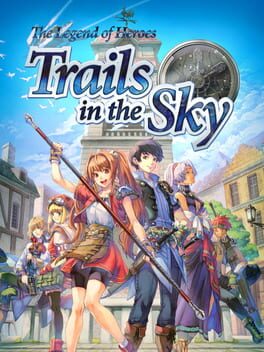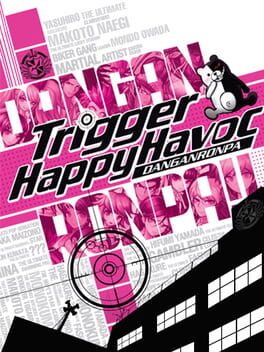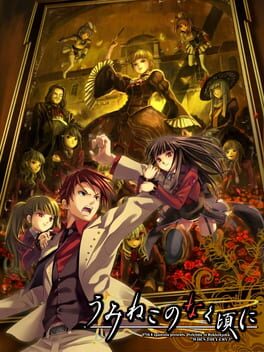theadhdagenda_
463 reviews liked by theadhdagenda_
Sonic Adventure
1998
The NieR of Sonic games...? What?
I never played a Sonic game before, but after reading Phantasm's review and having heard Wheatie advocate for this game for quite some while now, I decided to finally check out the series with Sonic Adventure - and I'm glad I did!
To make sense of the weird opening one-liner, Sonic Adventure is a game told through the eyes of six different characters - which means you need to play through the story six different times to fully understand what's going on. Each character comes with an unique gimmick and win condition, ranging from collecting Emerald Shards as Knuckles to catching a pet frog as Big the Cat. The narrative itself is nothing groundbreaking, it's fairly standard fare with Eggman trying to use an ancient evil named Chaos to destroy the local Station Square and rebuild it under his management. Chaos is an interesting villain though, since he functions basically the same as Resident Evil's Nemesis and you fight him several times with different characters in different power levels, as he grows in power each time he consumes a Chaos Emerald (you see, the name is as straightforward as it gets). As for the individual character stories themselves, you're free to approach them in any order you'd like, as long as you met the character in Sonic's story and the game will notify you when a new story is available. Only after completing all six story modes, you'll gain access to an epilogue and be able to fight the true final boss.
The levels themselves have some interesting mechanics, and they especially get to shine in Sonic's levels (as he's not a gimmicky character), I'll take the Lost World level as an example. While Knuckles can just crawl up the walls here with his moveset, Sonic has to rely on switches that allow him to walk on certain anti-gravity tiles on the wall or use mirrors to shine light on mirrors to illuminate a dark path. But it doesn't always have to be so complex, sometimes snowboarding down a giant mountain with an avalanche in the background is all you need. Even if I had a fun time with most of the levels, one of my biggest complaints is still the rebellious auto camera, which especially hates Sonic zooming through the zones at lightning speed and then jumps to some nonsensical angles, causing you to have no clue what's going on and miss your inputs. I'm not particularly mad at those camera shenanigans (would be lying if I told you it wasn't funny), but there are times where the jank goes from charming to annoying territory. Another thing I'd like to address is the strange progression sometimes outside of levels in the hub worlds. Thankfully there are red hint orbs in the game telling you where to go when you're feeling lost, but even then, sometimes the hints are so vague that I still found myself resorting to GameFAQs guides in order to locate where to head next. This would hardly be an issue on replays, but I couldn't find the raft for the life of me the first time I had to use it.
Sonic Adventure is a very ambitious game for the time it released and it's not only reflected in the level design, but also in the soundtrack, which covers a variety of musical genres and also uses higher quality instruments as opposed to a MIDI soundfont, which was possible thanks to the Dreamcast's advanced audio hardware. My favorite song is Amy's theme, My Sweet Passion, but I'm also particularly fond of Tikal's Theme and Mechanical Resonance. The Egg Carrier Theme needs a shoutout for itself, just for how catchy it is.
In the end, Sonic Adventure was a nice little departure from all the JRPGs I've played recently and I'm now eager to try the acclaimed Adventure 2 and other Sonic games in general - this includes the Steam version of Sonic Adventure DX, where I'm hoping to go for 100% when I get to it :D
I never played a Sonic game before, but after reading Phantasm's review and having heard Wheatie advocate for this game for quite some while now, I decided to finally check out the series with Sonic Adventure - and I'm glad I did!
To make sense of the weird opening one-liner, Sonic Adventure is a game told through the eyes of six different characters - which means you need to play through the story six different times to fully understand what's going on. Each character comes with an unique gimmick and win condition, ranging from collecting Emerald Shards as Knuckles to catching a pet frog as Big the Cat. The narrative itself is nothing groundbreaking, it's fairly standard fare with Eggman trying to use an ancient evil named Chaos to destroy the local Station Square and rebuild it under his management. Chaos is an interesting villain though, since he functions basically the same as Resident Evil's Nemesis and you fight him several times with different characters in different power levels, as he grows in power each time he consumes a Chaos Emerald (you see, the name is as straightforward as it gets). As for the individual character stories themselves, you're free to approach them in any order you'd like, as long as you met the character in Sonic's story and the game will notify you when a new story is available. Only after completing all six story modes, you'll gain access to an epilogue and be able to fight the true final boss.
The levels themselves have some interesting mechanics, and they especially get to shine in Sonic's levels (as he's not a gimmicky character), I'll take the Lost World level as an example. While Knuckles can just crawl up the walls here with his moveset, Sonic has to rely on switches that allow him to walk on certain anti-gravity tiles on the wall or use mirrors to shine light on mirrors to illuminate a dark path. But it doesn't always have to be so complex, sometimes snowboarding down a giant mountain with an avalanche in the background is all you need. Even if I had a fun time with most of the levels, one of my biggest complaints is still the rebellious auto camera, which especially hates Sonic zooming through the zones at lightning speed and then jumps to some nonsensical angles, causing you to have no clue what's going on and miss your inputs. I'm not particularly mad at those camera shenanigans (would be lying if I told you it wasn't funny), but there are times where the jank goes from charming to annoying territory. Another thing I'd like to address is the strange progression sometimes outside of levels in the hub worlds. Thankfully there are red hint orbs in the game telling you where to go when you're feeling lost, but even then, sometimes the hints are so vague that I still found myself resorting to GameFAQs guides in order to locate where to head next. This would hardly be an issue on replays, but I couldn't find the raft for the life of me the first time I had to use it.
Sonic Adventure is a very ambitious game for the time it released and it's not only reflected in the level design, but also in the soundtrack, which covers a variety of musical genres and also uses higher quality instruments as opposed to a MIDI soundfont, which was possible thanks to the Dreamcast's advanced audio hardware. My favorite song is Amy's theme, My Sweet Passion, but I'm also particularly fond of Tikal's Theme and Mechanical Resonance. The Egg Carrier Theme needs a shoutout for itself, just for how catchy it is.
In the end, Sonic Adventure was a nice little departure from all the JRPGs I've played recently and I'm now eager to try the acclaimed Adventure 2 and other Sonic games in general - this includes the Steam version of Sonic Adventure DX, where I'm hoping to go for 100% when I get to it :D
To start things off, I am not a big pokémon fan. I grew up with the games, but as I got older, I got into different RPG's, and started to find pokémon pretty boring in comparison. Pokémon is that thing that exists within everyone. It's a multimedia giant. Everyone has a favorite, and I see why this is such a beloved game now.
I think I struggle with the gameplay loop. Nobody really strategizes in Pokémon. Just attack and heal. Discard any of those buffs, you aren't gonna use them. That aside, the game excels in style, story, and characters.
I think this gen got a lot of flak when it came out for its pokemon designs, but I think they're some of my favorites. Everyone is too mean to vanillite and klink! Everything about this games style is unmatched, I'm afraid we won't see anything like it again. From the fixed cameras to the dynamic season system, theres a lot of world to see.
B&W is all about opposition, choice, and ideals. It's a strong take on how Pokémon are percieved, and how they belong in the world. It's great because you can understand the villains motives, but you can find truth in your own, as well. There's two sides to a coin, and not everything is all black and white.
I think I struggle with the gameplay loop. Nobody really strategizes in Pokémon. Just attack and heal. Discard any of those buffs, you aren't gonna use them. That aside, the game excels in style, story, and characters.
I think this gen got a lot of flak when it came out for its pokemon designs, but I think they're some of my favorites. Everyone is too mean to vanillite and klink! Everything about this games style is unmatched, I'm afraid we won't see anything like it again. From the fixed cameras to the dynamic season system, theres a lot of world to see.
B&W is all about opposition, choice, and ideals. It's a strong take on how Pokémon are percieved, and how they belong in the world. It's great because you can understand the villains motives, but you can find truth in your own, as well. There's two sides to a coin, and not everything is all black and white.
Balatro
2024
Balatro is a game that caught my eye and immediately knew I had to play it. I’ve been a big fan of many rogue-likes in the past like The Binding of Isaac, and Enter The Gungeon, Though with Balatro, the idea of playing poker hands to score chips with a ton of different jokers that provide different effects, along with some deck building and alterations to essentially rig yourself for success seemed extremely appealing to me due to my history with poker. After around fifty hours with the game, I think it’s an interesting experience, let’s get into it.
Balatro was immediately very addicting and had a great sense of style with the CRT filter, the amazing music creating this laid back atmosphere, and generally nice visuals with pop and flair that never made it boring to look at. You play poker hands to score a certain amount of chips per blind, with eight innings in a given run, winning a run allows you to keep your build going in “Endless Mode” which I never personally delved too much into, but was fun to limit test my decks from time to time. It’s easy enough to understand quickly as well, play poker hands, augment your cards, buy stuff in the shop, find jokers to help make your deck or specific hands better as the chip demand increases per blind. It’s an incredibly simple premise with a lot of satisfaction seeing the numbers go up and watching everything work in tandem like a symphony. It’s no doubt this was fully why I was so enamored by Balatro and found myself playing for several hours at a time. Getting a good build going has that same knowledge requirement and experimentation as the aforementioned rogue-likes, so in this regard, Balatro hits it out of the park, while somehow being more approachable and simple comparatively as well.
It wouldn’t be Balatro without those trusty jokers though. There’s one-hundred and fifty of them in total, each providing a different benefit or effect that will change how you’re playing, and what you build towards. While not every Joker will be unlocked from the start, unlocking them is just as fun as using them I’d say, with a plethora of different unlock conditions for each of them. Others may require you to cater a run specifically to unlock them, but that’s hardly asking much considering their benefit for you in future runs once unlocked. While most jokers will offer you added multiplier and chips to help you clear ante’s, others are a bit more exotic in what they do. For example, “Even Stevens” is a joker that only adds multiplier to cards that are evenly numbered, to the much more niche jokers like “cloud nine” that will provide you a dollar per nine you have in your deck, which could influence you to add/create more nine’s to keep that economy engine going, which may have you running four or five-of-a-kind later on. This sort of snowball effect with jokers is very entertaining and practical for endgame scaling, it all works together very well, not every Joker can be a winner, and some Jokers you’d do well to help you early on, but abandon later due to their poor scaling. With that said, every Joker is a treat to not only look at, but figure out what it does and if you can include it in your build or not, that constant experimentation is what will keep this game alive far past its relevance. It doesn’t even end there as Jokers also have certain rarities that will augment the Joker to provide further benefits, such as additional chips, multiplier, or even an extra Joker slot, which can make taking certain niche Jokers far more viable and interesting.
If Balatro’s core gameplay is losing its luster, playing a new deck is always a good way to spice things up. Initially, Balatro will set you up with the Red Deck, which gives you one extra discard which is decent for a starting deck, but certainly not my first choice. Thankfully unlocking decks is relatively simple, and you’ll quickly have a decent selection you can pick from. The Blue Deck grants you an extra hand every round, arguably more valuable than the Red Deck’s extra discard. Yellow Deck starts you out with ten dollars, allowing you to potentially augment your deck and claim some powerful jokers early. While the first few decks grant you early advantages you can attain in any run, later decks will start changing the fundamental building blocks of the deck itself, as well as mechanics. From the tattered Abandoned Deck that has no face cards, to the appealing checkered deck that only has the spade and heart suits within its library. Every deck emphasizes a certain kind of play, adapting and recognizing them is half the fun, but are varied enough to keep the game fresh and interesting each and every time you make this decision before starting a new run. While the requirements to unlock later decks can be a bit demanding, they no doubt further change how you’ll perceive the game, as well as making specific setups, jokers, and cards far more valuable than they normally would be.
Difficulty in rogue-likes is a delicate balance of luck and skill, Balatro I think mostly sticks the landing here, with a few caveats. Balatro has multiple difficulties you can test your poker-playing skills against after you win a run with a specific deck. Each won run will unlock a new “Stake” which makes the game a bit more limited. From increasing the amount of chips to win per blind, to reducing your money-making, Balatro is rather creative and smart with how it limits the player without drastically altering the core gameplay. I think most of the difficulties here are very pleasant and force you to adapt to them without being frustrating or feeling unfair, which is very important to stress. It becomes even more important when you consider the fact every restriction each stake presents will continue to be applied to every stake afterward, making those last few stakes have a lot you need to keep in mind and strategize around. Let me be perfectly blunt here: Balatro stays incredibly consistent until you reach the Orange Stake. Originally, Orange Stake would begin to increase the price of booster packs incrementally each ante you cleared, by ante eight, the price of booster packs become ludicrous and not worth it. This made specific strategies entirely useless since there was not even a guarantee a useful card would be inside the myriad of different pack options the game presents to you. This further reduced valid strategies and would force players down the route of utilizing high card and pair builds since those hands were the most reliable to play. Without packs, rigging the deck in your favor basically became near-impossible and deeply frustrating. The ratio of luck and skill becomes heavily skewed in Orange Stake, which certainly did not leave me impressed, rather a lot of the flaws in Balatro became far more noticeable to me unfortunately. The reliance on luck to get a good run going was just far too inconsistent to me, and skill was rarely rewarded as much by this point, it certainly was… harrowing.
Gold stake was an even worse offender since it reduced your maximum hand size by one, making certain hands like flush and straight infinitely harder to pull off. All of this served to shatter any balance between luck and skill tremendously, and is by far the worst part of Balatro, or I should say was. Balatro has since been updated, making both Orange and Gold Stake have entirely new gimmicks that don’t fully fix the problem, but are ultimately much better for the game. Orange stake now adds “perishable” jokers which will lose their abilities after five rounds of use. There is a thirty percent chance of any Joker having this perishable sticker, so while it still involves some luck to not get every Joker with this sticker, allowing the pack avenue to stay open can allow for far more strategies and certain hand types to remain viable, which is a very significant improvement. Gold stake has had a similar change with “rentable” Jokers, these Jokers initially only cost one dollar in the store, but at the end of every round, they will charge you three. Not only does this once again not remove the luck factor, but it essentially prioritizes having a good economy or way to make money early, but still far better than what Gold Stake was before. Even with these changes, I think Balatro truly shines at its best on the easiest difficulty: White Stake, and when you’re simply able to have fun and enjoy the game without these restrictions. While the higher difficulties deserve their time in the sun, I don’t think they’re fully necessary to have a complete experience, but if you’re looking for a challenge, you’ll certainly get one!
Balatro does explore other avenues for challenge though, much like its contemporaries. Challenges that alter the rules of the game and force you to adapt to them are always a welcome addition to any rogue-like, and Balatro does a great job here. There are twenty challenges to sink your teeth into, and while they can’t all be winners, the few I had the pleasure of playing, I really enjoyed. Omelet was a particularly fun one, and the first challenge among the list where you will earn no money from any source except selling off cards, and you start with five “Egg Jokers” that increase in value every round. The idea is to sell them off only when you see something you absolutely want or need for your build, which I really liked, it made money far more valuable and really made you weigh your options rather than just burning money whenever you had it in the normal rules. This is just one example, but the challenges here felt very thought-out and valid to have in the game, while some of them can be a bit difficult to grasp or succeed in, it wouldn’t be a challenge if it wasn’t so.
I want to address a bit of controversy about Balatro in how it simulates gambling. The creator himself has denied this design philosophy, but admits the game does have risk/reward elements like any other Rogue-like would. I’ll be the first to admit Balatro became incredibly enticing and hard to put down for me personally, but The Binding of Isaac and Enter The Gungeon were even more so, with five-hundred and eighty hours, and over one-hundred hours respectively, Balatro barely cracked fifty. This is not to say these games are to be avoided or also replicate “gambling” but I do want to say these games are indeed very addicting, but for Balatro I also do not think it’s anywhere close to gambling, at least not any closer than a game like Vampire Survivors which was equally criticized for “replicating” something akin to a slot machine. While I don’t want to delve too deeply into this topic, just know upfront the game should not be affiliated with the negative contexts of gambling, but is certainly fun and hard to pull away from, but so are many other games, especially Rogue-likes.
Some closing thoughts on Balatro as a whole. I think the game is rather remarkable to say the least, while I think certain hand types like flush have far more supporting jokers than something like straight, the general balance and freedom to build whatever deck you want is very satisfying and is really refreshing to play if you’ve been stuck playing basic poker so long. Rigging the odds in your favor by improving your cards, copying them, or outright destroying them are all simple yet effective and provide enough decision weighing to make it very engaging each and every single time. I think the game hits the right difficulty mostly, orange and gold stake to me rely a bit too much on luck even after the changes to find them too compelling or fun, but I’d be doing a huge injustice to say it wasn’t damn satisfying to complete those stakes, much like going all-in when you’re sitting on four-of-a-kind in real poker. Jokers by themselves will define how you play and what you can build towards, but aren’t always so paramount to not experiment with what you can do in any given run, and most have general use to maintain that freedom of expression within deck building that is very much welcome, but also has room for oddly specific Jokers that can turn a simple run into a God run in just a few seconds. At first Balatro dug its hooks deep into me, though overtime it weakened its grip and has comfortably landed somewhere for me as a remarkable game, but not a masterpiece I once thought when doing my first handful of runs. Regardless, I enjoyed my time with Balatro and will be happy to boot it up for a few games every now and again, but certainly not grinding it like I once was. Thank you all for reading this shorter review on Balatro, I’ll see you all in the next one.
Balatro was immediately very addicting and had a great sense of style with the CRT filter, the amazing music creating this laid back atmosphere, and generally nice visuals with pop and flair that never made it boring to look at. You play poker hands to score a certain amount of chips per blind, with eight innings in a given run, winning a run allows you to keep your build going in “Endless Mode” which I never personally delved too much into, but was fun to limit test my decks from time to time. It’s easy enough to understand quickly as well, play poker hands, augment your cards, buy stuff in the shop, find jokers to help make your deck or specific hands better as the chip demand increases per blind. It’s an incredibly simple premise with a lot of satisfaction seeing the numbers go up and watching everything work in tandem like a symphony. It’s no doubt this was fully why I was so enamored by Balatro and found myself playing for several hours at a time. Getting a good build going has that same knowledge requirement and experimentation as the aforementioned rogue-likes, so in this regard, Balatro hits it out of the park, while somehow being more approachable and simple comparatively as well.
It wouldn’t be Balatro without those trusty jokers though. There’s one-hundred and fifty of them in total, each providing a different benefit or effect that will change how you’re playing, and what you build towards. While not every Joker will be unlocked from the start, unlocking them is just as fun as using them I’d say, with a plethora of different unlock conditions for each of them. Others may require you to cater a run specifically to unlock them, but that’s hardly asking much considering their benefit for you in future runs once unlocked. While most jokers will offer you added multiplier and chips to help you clear ante’s, others are a bit more exotic in what they do. For example, “Even Stevens” is a joker that only adds multiplier to cards that are evenly numbered, to the much more niche jokers like “cloud nine” that will provide you a dollar per nine you have in your deck, which could influence you to add/create more nine’s to keep that economy engine going, which may have you running four or five-of-a-kind later on. This sort of snowball effect with jokers is very entertaining and practical for endgame scaling, it all works together very well, not every Joker can be a winner, and some Jokers you’d do well to help you early on, but abandon later due to their poor scaling. With that said, every Joker is a treat to not only look at, but figure out what it does and if you can include it in your build or not, that constant experimentation is what will keep this game alive far past its relevance. It doesn’t even end there as Jokers also have certain rarities that will augment the Joker to provide further benefits, such as additional chips, multiplier, or even an extra Joker slot, which can make taking certain niche Jokers far more viable and interesting.
If Balatro’s core gameplay is losing its luster, playing a new deck is always a good way to spice things up. Initially, Balatro will set you up with the Red Deck, which gives you one extra discard which is decent for a starting deck, but certainly not my first choice. Thankfully unlocking decks is relatively simple, and you’ll quickly have a decent selection you can pick from. The Blue Deck grants you an extra hand every round, arguably more valuable than the Red Deck’s extra discard. Yellow Deck starts you out with ten dollars, allowing you to potentially augment your deck and claim some powerful jokers early. While the first few decks grant you early advantages you can attain in any run, later decks will start changing the fundamental building blocks of the deck itself, as well as mechanics. From the tattered Abandoned Deck that has no face cards, to the appealing checkered deck that only has the spade and heart suits within its library. Every deck emphasizes a certain kind of play, adapting and recognizing them is half the fun, but are varied enough to keep the game fresh and interesting each and every time you make this decision before starting a new run. While the requirements to unlock later decks can be a bit demanding, they no doubt further change how you’ll perceive the game, as well as making specific setups, jokers, and cards far more valuable than they normally would be.
Difficulty in rogue-likes is a delicate balance of luck and skill, Balatro I think mostly sticks the landing here, with a few caveats. Balatro has multiple difficulties you can test your poker-playing skills against after you win a run with a specific deck. Each won run will unlock a new “Stake” which makes the game a bit more limited. From increasing the amount of chips to win per blind, to reducing your money-making, Balatro is rather creative and smart with how it limits the player without drastically altering the core gameplay. I think most of the difficulties here are very pleasant and force you to adapt to them without being frustrating or feeling unfair, which is very important to stress. It becomes even more important when you consider the fact every restriction each stake presents will continue to be applied to every stake afterward, making those last few stakes have a lot you need to keep in mind and strategize around. Let me be perfectly blunt here: Balatro stays incredibly consistent until you reach the Orange Stake. Originally, Orange Stake would begin to increase the price of booster packs incrementally each ante you cleared, by ante eight, the price of booster packs become ludicrous and not worth it. This made specific strategies entirely useless since there was not even a guarantee a useful card would be inside the myriad of different pack options the game presents to you. This further reduced valid strategies and would force players down the route of utilizing high card and pair builds since those hands were the most reliable to play. Without packs, rigging the deck in your favor basically became near-impossible and deeply frustrating. The ratio of luck and skill becomes heavily skewed in Orange Stake, which certainly did not leave me impressed, rather a lot of the flaws in Balatro became far more noticeable to me unfortunately. The reliance on luck to get a good run going was just far too inconsistent to me, and skill was rarely rewarded as much by this point, it certainly was… harrowing.
Gold stake was an even worse offender since it reduced your maximum hand size by one, making certain hands like flush and straight infinitely harder to pull off. All of this served to shatter any balance between luck and skill tremendously, and is by far the worst part of Balatro, or I should say was. Balatro has since been updated, making both Orange and Gold Stake have entirely new gimmicks that don’t fully fix the problem, but are ultimately much better for the game. Orange stake now adds “perishable” jokers which will lose their abilities after five rounds of use. There is a thirty percent chance of any Joker having this perishable sticker, so while it still involves some luck to not get every Joker with this sticker, allowing the pack avenue to stay open can allow for far more strategies and certain hand types to remain viable, which is a very significant improvement. Gold stake has had a similar change with “rentable” Jokers, these Jokers initially only cost one dollar in the store, but at the end of every round, they will charge you three. Not only does this once again not remove the luck factor, but it essentially prioritizes having a good economy or way to make money early, but still far better than what Gold Stake was before. Even with these changes, I think Balatro truly shines at its best on the easiest difficulty: White Stake, and when you’re simply able to have fun and enjoy the game without these restrictions. While the higher difficulties deserve their time in the sun, I don’t think they’re fully necessary to have a complete experience, but if you’re looking for a challenge, you’ll certainly get one!
Balatro does explore other avenues for challenge though, much like its contemporaries. Challenges that alter the rules of the game and force you to adapt to them are always a welcome addition to any rogue-like, and Balatro does a great job here. There are twenty challenges to sink your teeth into, and while they can’t all be winners, the few I had the pleasure of playing, I really enjoyed. Omelet was a particularly fun one, and the first challenge among the list where you will earn no money from any source except selling off cards, and you start with five “Egg Jokers” that increase in value every round. The idea is to sell them off only when you see something you absolutely want or need for your build, which I really liked, it made money far more valuable and really made you weigh your options rather than just burning money whenever you had it in the normal rules. This is just one example, but the challenges here felt very thought-out and valid to have in the game, while some of them can be a bit difficult to grasp or succeed in, it wouldn’t be a challenge if it wasn’t so.
I want to address a bit of controversy about Balatro in how it simulates gambling. The creator himself has denied this design philosophy, but admits the game does have risk/reward elements like any other Rogue-like would. I’ll be the first to admit Balatro became incredibly enticing and hard to put down for me personally, but The Binding of Isaac and Enter The Gungeon were even more so, with five-hundred and eighty hours, and over one-hundred hours respectively, Balatro barely cracked fifty. This is not to say these games are to be avoided or also replicate “gambling” but I do want to say these games are indeed very addicting, but for Balatro I also do not think it’s anywhere close to gambling, at least not any closer than a game like Vampire Survivors which was equally criticized for “replicating” something akin to a slot machine. While I don’t want to delve too deeply into this topic, just know upfront the game should not be affiliated with the negative contexts of gambling, but is certainly fun and hard to pull away from, but so are many other games, especially Rogue-likes.
Some closing thoughts on Balatro as a whole. I think the game is rather remarkable to say the least, while I think certain hand types like flush have far more supporting jokers than something like straight, the general balance and freedom to build whatever deck you want is very satisfying and is really refreshing to play if you’ve been stuck playing basic poker so long. Rigging the odds in your favor by improving your cards, copying them, or outright destroying them are all simple yet effective and provide enough decision weighing to make it very engaging each and every single time. I think the game hits the right difficulty mostly, orange and gold stake to me rely a bit too much on luck even after the changes to find them too compelling or fun, but I’d be doing a huge injustice to say it wasn’t damn satisfying to complete those stakes, much like going all-in when you’re sitting on four-of-a-kind in real poker. Jokers by themselves will define how you play and what you can build towards, but aren’t always so paramount to not experiment with what you can do in any given run, and most have general use to maintain that freedom of expression within deck building that is very much welcome, but also has room for oddly specific Jokers that can turn a simple run into a God run in just a few seconds. At first Balatro dug its hooks deep into me, though overtime it weakened its grip and has comfortably landed somewhere for me as a remarkable game, but not a masterpiece I once thought when doing my first handful of runs. Regardless, I enjoyed my time with Balatro and will be happy to boot it up for a few games every now and again, but certainly not grinding it like I once was. Thank you all for reading this shorter review on Balatro, I’ll see you all in the next one.
Ultrakill
2020
Persona 3 Reload
2024
This review contains spoilers
As I played this game, I kept asking myself one question. How am I meant to enjoy this? Not as a dig at the game, but as a consumer, what is this supposed to be for me?
I’ve previously played persona 3 FES, so I can’t experience it as my first voyage into this story, and even with all the new additions, it’s still largely the same product. So, what is persona 3 reload supposed to be for me?
Funnily enough, this question was answered by something that was already in the previous versions of the game. Shinjiro Aragaki. In my original FES run, I avoided him completely since I knew about his death. I didn’t use him in my party and I didn’t interact with him at all. Didn’t wanna get attached to someone I knew I was going to lose, but on a whim I decided to use him in my party when I got him for this playthrough. Once I started using him in my party, I started seeing the appeal of his character. Then I did his new hangout events and started really appreciating and enjoying his character, but his fate still lingered in the back of my mind. Was it really worth investing all this time and effort into someone who I’ll lose?
As I kept playing the game, I decided to try out some more social links I hadn’t finished in my original run, eventually running into Akinari. Another character whose fate I already knew about and had just never gotten around to starting. This is the point where everything clicked for me. His social link lets you know right off the bat that he’s going to die. There’s no saving him. Akinari WILL die, regardless of anything you do. “How is this any different from Shinji?” I thought. I know this man will die, so why am I motivated to spend time with him? The answer I came to involved every single party member, social link, and the game itself. All of these will eventually come to an end.
They don’t die, but you eventually have to get off the elevator. It’s just that some people step off a little earlier than you. Saying goodbye to all these doesn’t make them redundant or useless. Every moment I spent with these characters was my own choice. It wasn’t some IGN guide telling me how to max out everything and make the best use of my time. They would’ve told me to steer clear of using Shinji as a party member. Making these choices for myself, even if they’re not optimal made them matter all that much more. I chose to spend time with Shinji. I chose to accompany Akinari. I chose to spend time with all my party members, not because I wanted the personas you unlock from maxing out the social link, but because they deserved my time. I wasn’t crossing off items on a checklist, but instead I was spending time with friends.
So when I reached that final battle, when I squared off against Nyx, their words reached me. Every single moment I spent with them made it so I earned their support. But eventually, your time comes to step off the elevator. Your time ends with these characters and their world. Sometimes it leaves you wanting to spend more time with them, not ready to leave them behind, but you find that everyone who stepped off before you is already there, waiting for you.
That’s The Answer I reached. Even if you reach a different one than I did, I hope your ride is just as enjoyable as mine was
I’ve previously played persona 3 FES, so I can’t experience it as my first voyage into this story, and even with all the new additions, it’s still largely the same product. So, what is persona 3 reload supposed to be for me?
Funnily enough, this question was answered by something that was already in the previous versions of the game. Shinjiro Aragaki. In my original FES run, I avoided him completely since I knew about his death. I didn’t use him in my party and I didn’t interact with him at all. Didn’t wanna get attached to someone I knew I was going to lose, but on a whim I decided to use him in my party when I got him for this playthrough. Once I started using him in my party, I started seeing the appeal of his character. Then I did his new hangout events and started really appreciating and enjoying his character, but his fate still lingered in the back of my mind. Was it really worth investing all this time and effort into someone who I’ll lose?
As I kept playing the game, I decided to try out some more social links I hadn’t finished in my original run, eventually running into Akinari. Another character whose fate I already knew about and had just never gotten around to starting. This is the point where everything clicked for me. His social link lets you know right off the bat that he’s going to die. There’s no saving him. Akinari WILL die, regardless of anything you do. “How is this any different from Shinji?” I thought. I know this man will die, so why am I motivated to spend time with him? The answer I came to involved every single party member, social link, and the game itself. All of these will eventually come to an end.
They don’t die, but you eventually have to get off the elevator. It’s just that some people step off a little earlier than you. Saying goodbye to all these doesn’t make them redundant or useless. Every moment I spent with these characters was my own choice. It wasn’t some IGN guide telling me how to max out everything and make the best use of my time. They would’ve told me to steer clear of using Shinji as a party member. Making these choices for myself, even if they’re not optimal made them matter all that much more. I chose to spend time with Shinji. I chose to accompany Akinari. I chose to spend time with all my party members, not because I wanted the personas you unlock from maxing out the social link, but because they deserved my time. I wasn’t crossing off items on a checklist, but instead I was spending time with friends.
So when I reached that final battle, when I squared off against Nyx, their words reached me. Every single moment I spent with them made it so I earned their support. But eventually, your time comes to step off the elevator. Your time ends with these characters and their world. Sometimes it leaves you wanting to spend more time with them, not ready to leave them behind, but you find that everyone who stepped off before you is already there, waiting for you.
That’s The Answer I reached. Even if you reach a different one than I did, I hope your ride is just as enjoyable as mine was
Altogether, I would describe gaming as a rather unpretentious medium, as most story-driven games are too busy wearing their hearts on their sleeves to be considered pretentious. This is something of a disappointment for me, because I love pretentious things. Absolutely adore them. I find that people who are a little too confident in what they're trying to say often will find fascinating ways to say them. If that fascination happens to also come with a little bit of ego-stroking, then so be it. And dear reader, let me tell you, Disco Elysium has all the pretentious flaire of a 1970s rock opera. You cannot possibly convince me that “evil apes dukin’ out on a giant ball” was a sentence written by someone who didn't think they were being at least a little bit clever while they were doing so, nor can you convince me that Disco Elysium isn't all the better for it. Disco Elysium is a pioneer in the field of pretentious video games, and more games ought to follow in its example.
Disco Elysium is also home to some absolutely stellar worldbuilding. The murder mystery the game ostensibly focuses on is less so the game's main concern and more so an excuse for the game to explore various socio-political ideas through the characters involved in and events leading up to the murder. The way the game then takes real world political ideologies and seamlessly weaves them into the context of its fictional world's history is a sight to behold. I can't claim to have fully picked up on all of it, but I know strong commentary when I see it.
Unfortunately, it is that strong worldbuilding and political commentary that leads me to my main complaint regarding Disco Elysium, which is that it wasn't always clear to me how exactly my choices impacted the narrative. The game opens with a large array of stats to distribute points between and seems to put on emphasis on role playing Harry how you think he should act, but apart from a couple of Thoughts and quests exclusive to the Final Cut version of the game, it never really felt like the way I chose to role play Harry had a massive impact on the world itself. I don't have a problem with linearity by itself, but when you try to present linearity as non-linearity, it becomes harder for me to fully immerse myself. I respect the game's commitment to being basically a visual novel, in the most literal sense of the term, but in this case, I don't think it would've hurt too much to lean into its gamier elements and include an alignment meter or something.
Also—and these technical complaints don't actually affect my opinion on the game itself, but they need to be mentioned—the Switch port of this game is extremely unpolished. Frame rate drops to a halt during autosaves, incorrect voice lines will occasionally load in, the audio quality of the voice lines are all over the place, and to top it all off, my game soflocked a solid three or four times and crashed to the home screen another three times on top of that. This is not a graphically intensive game, it really should not run this poorly.
Disco Elysium is also home to some absolutely stellar worldbuilding. The murder mystery the game ostensibly focuses on is less so the game's main concern and more so an excuse for the game to explore various socio-political ideas through the characters involved in and events leading up to the murder. The way the game then takes real world political ideologies and seamlessly weaves them into the context of its fictional world's history is a sight to behold. I can't claim to have fully picked up on all of it, but I know strong commentary when I see it.
Unfortunately, it is that strong worldbuilding and political commentary that leads me to my main complaint regarding Disco Elysium, which is that it wasn't always clear to me how exactly my choices impacted the narrative. The game opens with a large array of stats to distribute points between and seems to put on emphasis on role playing Harry how you think he should act, but apart from a couple of Thoughts and quests exclusive to the Final Cut version of the game, it never really felt like the way I chose to role play Harry had a massive impact on the world itself. I don't have a problem with linearity by itself, but when you try to present linearity as non-linearity, it becomes harder for me to fully immerse myself. I respect the game's commitment to being basically a visual novel, in the most literal sense of the term, but in this case, I don't think it would've hurt too much to lean into its gamier elements and include an alignment meter or something.
Also—and these technical complaints don't actually affect my opinion on the game itself, but they need to be mentioned—the Switch port of this game is extremely unpolished. Frame rate drops to a halt during autosaves, incorrect voice lines will occasionally load in, the audio quality of the voice lines are all over the place, and to top it all off, my game soflocked a solid three or four times and crashed to the home screen another three times on top of that. This is not a graphically intensive game, it really should not run this poorly.
Fire Emblem Engage
2023
I'll admit first and foremost, I saw the leaks before release, I saw the trailers for this game, and I thought it looked like absolute dogshit! I was terrified to see where Fire Emblem was headed with this, and lord knows I wasn't anywhere close to interested in those avatar designs. I thought it looked like complete and utter ridiculousness, but... time went on, and it grew on me. As wheatie does, the game released and I saw a few clips of it floating around on different platforms. It looked ridiculous. Almost... intentionally so?
The story is terrible, yeah, of course, I think that's been made abundantly clear by everybody, but I can't help but smile at it still. Everything about Fire Emblem Engage is silly, from its writing, to its character designs, to just its whole damn premise, it's absurd! And yet, they seem to know that! So instead of desperately trying to claw its way into a dark and brooding story, it almost felt like they were more leaning into the absurdity of what they had. This isn't a game you're supposed to take seriously, and I fuckin' love it.
Looking past that, though, as a Fire Emblem in gameplay, it does a stellar job. I don't feel the need to go over what everyone else already has countless times before, general consensus seems to be shockingly positive regarding the map design and the gameplay, but I also really enjoyed some of the paralogues, getting to revisit maps from the older games and even getting to walk around them somewhat freely after the fight's over. That's something I'd also like to talk about, because good god this game is so fucking pretty! Maybe I'm just surprised after having played Three Houses for so long and staring at its boring and repetitive maps so many times, but even besides that, the hub worlds like the Somniel or the post-battle, fully modeled maps, I was absolutely astounded by just how beautiful Engage was to look at. Could very well be the prettiest game on the Switch, helped by its already vibrant and colorful/flashy design everywhere else.
Now combine those beautiful atmospheres with a just as beautiful soundtrack, pure bliss. I spent so much time in the Somniel just spacing out and wandering the area, listening to whichever song fit the time, and at this point I think it's going to stay with me for the next while. The serenity that comes with these tracks is something I find scarcely matched in other media. Shit, I'm listening to them even now, writing this review, thanks to this cool little compilation I found of all of 'em. That's not to say the other tracks aren't amazing as well. Being as obsessed with this series as I have been for the last eight years or so, it was more than exhilarating listening to the throwbacks they whipped up for all of the Emblem Trial paralogues, or the slow and gratifying buildup of Last Engage at the end, to be followed shortly after by a lovely vocal track for the credits roll, among god knows how many others.
Engage was a stunning, whimsical, and just overall fun experience, in every sense of the word. I regret being so doubtful of this game at first, and I especially regret taking 14 entire months to finish it (oops). It's, as I said, absurd and ridiculous the whole way through, and I've learned to appreciate that sort of thing so much more over the years. I can't call it my favorite Fire Emblem, Sacred Stones has that nostalgia (and GBA) bias over me, but this was still a marvelous love letter to one of my favorite franchises ever, even despite some of its more prominent shortcomings.
"camp" as the kids say
The story is terrible, yeah, of course, I think that's been made abundantly clear by everybody, but I can't help but smile at it still. Everything about Fire Emblem Engage is silly, from its writing, to its character designs, to just its whole damn premise, it's absurd! And yet, they seem to know that! So instead of desperately trying to claw its way into a dark and brooding story, it almost felt like they were more leaning into the absurdity of what they had. This isn't a game you're supposed to take seriously, and I fuckin' love it.
Looking past that, though, as a Fire Emblem in gameplay, it does a stellar job. I don't feel the need to go over what everyone else already has countless times before, general consensus seems to be shockingly positive regarding the map design and the gameplay, but I also really enjoyed some of the paralogues, getting to revisit maps from the older games and even getting to walk around them somewhat freely after the fight's over. That's something I'd also like to talk about, because good god this game is so fucking pretty! Maybe I'm just surprised after having played Three Houses for so long and staring at its boring and repetitive maps so many times, but even besides that, the hub worlds like the Somniel or the post-battle, fully modeled maps, I was absolutely astounded by just how beautiful Engage was to look at. Could very well be the prettiest game on the Switch, helped by its already vibrant and colorful/flashy design everywhere else.
Now combine those beautiful atmospheres with a just as beautiful soundtrack, pure bliss. I spent so much time in the Somniel just spacing out and wandering the area, listening to whichever song fit the time, and at this point I think it's going to stay with me for the next while. The serenity that comes with these tracks is something I find scarcely matched in other media. Shit, I'm listening to them even now, writing this review, thanks to this cool little compilation I found of all of 'em. That's not to say the other tracks aren't amazing as well. Being as obsessed with this series as I have been for the last eight years or so, it was more than exhilarating listening to the throwbacks they whipped up for all of the Emblem Trial paralogues, or the slow and gratifying buildup of Last Engage at the end, to be followed shortly after by a lovely vocal track for the credits roll, among god knows how many others.
Engage was a stunning, whimsical, and just overall fun experience, in every sense of the word. I regret being so doubtful of this game at first, and I especially regret taking 14 entire months to finish it (oops). It's, as I said, absurd and ridiculous the whole way through, and I've learned to appreciate that sort of thing so much more over the years. I can't call it my favorite Fire Emblem, Sacred Stones has that nostalgia (and GBA) bias over me, but this was still a marvelous love letter to one of my favorite franchises ever, even despite some of its more prominent shortcomings.
"camp" as the kids say
Persona 3 Reload
2024
Enjoyment - 9/10
Difficulty - 3/10
Persona 3 Reload is a lovely slice of cheesecake. I do not care if it makes me fat, I LOVE IT!
I was very excited to play this game, since I had never played the original. Persona 3 Reload did not disappoint and exceeded my expectations. The OST is a standout aspect of the experience. VERY COOL MUSIC! The sound design in general scratches my brain in the best ways possible.
Persona 3 Reload bangs you up, like messes you up real bad, and admits you to the hospital. What a kind video game. Must play, must buy.
🏆
Difficulty - 3/10
Persona 3 Reload is a lovely slice of cheesecake. I do not care if it makes me fat, I LOVE IT!
I was very excited to play this game, since I had never played the original. Persona 3 Reload did not disappoint and exceeded my expectations. The OST is a standout aspect of the experience. VERY COOL MUSIC! The sound design in general scratches my brain in the best ways possible.
Persona 3 Reload bangs you up, like messes you up real bad, and admits you to the hospital. What a kind video game. Must play, must buy.
🏆
No matter how hard you try to break us, the future is ours to shape! Always!
The premise of Xenoblade Chronicles is simple, yet effective. Atop the colossal Bionis, the three childhood friends Shulk, Reyn and Fiora are living their best lives, until one day a particularly evil robot shows up to disturb the local peace. With the help of the legendary sword Monado, Shulk embarks on a journey across the Bionis to track down the unknown assailant and get his revenge. Not only is the Monado arguably one of the coolest weapons in fiction, it's also especially useful in combat against the machines and allows the wielder to see into the future. The theme of fate is ever-present, as Shulk has to deal with visions involving the people close to him dying several times, and only he can change the future to prevent these events from playing out, while also pursuing his own goals. I'll not take away any more from the story, since I found it to be pretty intriguing and well written until the end, despite having quite a few tropes here and there and also some predictability to it. Even with the sheer amount of downright meme-worthy lines or shonen shenanigans, the core narrative is still surprisingly solid and doesn't fall flat in terms of twists either. Yes, Dunban being "over there" is actually important to the plot. The setting of the two titans is incredibly unique and memorable, but also just straight up cool at the same time, the area progression is really satisfying here. As for the main cast, they all have their reasons to join Shulk in his fight against the Mechons and their voice acting is superb. It's a shame Adam Howden never got any major roles besides Shulk, since he especially nailed those screams and emotional moments. But honestly, the rest of the cast is just as good and I like how many unknown voice actors are featured here (and their British accents).
While the main storyline is not as long as I expected it to be, Xenoblade is still jam-packed with side content, rocketing up the overall possible playtime by a significant amount. Most of the side quests are just fetch quests or "kill x amounts of these monsters", but there are also several skill trees or other cool rewards locked behind others. It never crossed my thoughts until I beat the story, how much Xenoblade rewards interacting with the world on the side, as there's even a whole chart accessible through the main menu where you can see the relations between every single named NPC and the locale they belong to. There's an entire trading mechanic I didn't even pay attention to in my playthrough, but it's cool to know it's there, I think little things like this or the info you can read up on the named NPCs on the chart improve the already impressive worldbuilding by a lot again. Now, one of my biggest regrets is not interacting with the Colony 6 side-story at all, there were many side quests related to it and I couldn't complete any of them because I somehow didn't do the initial one. Honestly, it's a shame it took me so long to properly appreciate those aspects, so I'll definitely focus on them on my eventual New Game+ playthrough.
Amidst the fierce battle cries of "Now it's Reyn Time!", "Electric Gutbuster!" and "Star-searing flames of ABSOLUTION!", I actually ended up liking the combat very much and was surprised by how unique it was. By the end it devolved into chain attack spam for me, but before that point, I think the MMO-style approach is really fitting and fun overall, while the cheesy battle lines of the cast add a whole layer of entertainment as well. Here, good preparation is half the battle already, as you will need to decide which skills your AI-controlled party members should use and how to efficiently combine those with the tactics of the rest of the team for optimal results. I said the combat is "MMO-style", because skills are locked behind cooldowns and your active character is using auto-attacks in the downtime to fill the special bar, like in the case of Shulk it's used for the Monado Arts. His signature sword not only specializes in slicing through machinery, but can also buff him or his party in various other ways, like shielding them or granting everyone the ability to hit the Mechons. Each of those abilities uses different amounts of the special gauge, so it's up to you to decide what's the best approach for certain combat situations. It would be pretty unwise to keep throwing out Arts which use your full gauge, as enemies and especially bosses can counter those by attacking with so-called Vision Attacks. Those come in three forms, Red, White and Purple. By casting the Impulse Art on a party member, they can dodge a red attack, which is pretty straightforward. Things get interesting for the white attacks, as they require you to have a properly leveled Shield Art to even block the move - so if an enemy uses "Attack VII", you need the skill level of your Shield Art atleast at 7, anything below will not block. The use of haptic feedback is also really underappreciated from what I've seen, every time you hit with a chance attack you get vibration on hit and everytime you break an enemy's vision attack the controller emulates this "breaking" effect with a stronger rumble. There's also a pulse while seeing the animations for vision attacks playing out, resembling a heartbeat, and that's pretty cool if you ask me.
Teambuilding is a central mechanic in Xenoblade Chronicles, and also one that is handled in an interesting way. First of all, you get access to most of the cast fairly early into the story already, so you can experiment with different teams through many different areas and see who has your favorite playstyle, who you want to main and who you don't actually like at all. This availability of being able to build around your team without even getting to the meat of the main story yet is such a nice change of pace, since I know so many games where you get party members so late, that they're basically unusable, as you have probably already have a good team composition at that point. Looking at you, Fire Emblem. But Xenoblade doesn't have this issue and it's just really nice, so I hope the other two games in the trilogy adapt this approach as well. As for their actual involvement in gameplay, each teammate has an unique role and playstyle, so you can basically play any possible combination of party members together and it will work somehow. Another neat feature is the ability to choose any character besides Shulk as the leader, allowing you to control them in the overworld and battle, it's very handy for certain encounters (or if you're just a big fan of the character). Like personally I played Melia on Mount Valka so I could have an easier time reaching the airborne enemies and it ended up being a really pleasant change of pace! There is also a whole layer of customization here besides the current party setup, since you can tweak individual characters to your liking by equipping them with gems, certain armor pieces or adjusting the skill trees. I really like how skill trees are handled here, like you still can normally unlock character-specific skills of individual branches through EXP, but you're also able to make use of the skills of other characters if you raise the friendship between them accordingly. This is not a metaphorical statement, raising the affinity between two teammates comes with a nice amount of extras - you unlock new heart-to-heart events across the world, the possibility of extending chain attacks is higher and as mentioned before, you gain access to a bunch of the opposite character's skills. Very nice!
As for the soundtrack, the Definitive Edition features an (almost) entirely revamped OST with new arranged tracks. I've only heard a few of the original tracks in Smash before, so I won't compare the new arrangements to the original compositions. With that out of the way, I'm a big fan of the musical score for DE and especially the more emotional songs here really hit me at times. Hearing Engage the Enemy for the very first time in-game with the corresponding cutscene is an ethereal feeling and gave me shivers in combination with Adam Howden's performance there. Gaur Plain is also one of my favorites, even if that one's a basic pick - maybe because it's just a memorable, good song. My final nomination goes out to Mechanical Rhythm for just being a pretty sick standard battle theme, which could easily pass as a boss theme elsewhere.
Considering I'm planning to do a NG+ one day to catch up on the content I missed, it's needless to say that Xenoblade Chronicles left quite the impression on me, even after finishing the game. Now onto Future Connected and I'm looking forward to playing Xenoblade 2 in a while too. Here's hoping that the rest of the trilogy will be just as fun!
The premise of Xenoblade Chronicles is simple, yet effective. Atop the colossal Bionis, the three childhood friends Shulk, Reyn and Fiora are living their best lives, until one day a particularly evil robot shows up to disturb the local peace. With the help of the legendary sword Monado, Shulk embarks on a journey across the Bionis to track down the unknown assailant and get his revenge. Not only is the Monado arguably one of the coolest weapons in fiction, it's also especially useful in combat against the machines and allows the wielder to see into the future. The theme of fate is ever-present, as Shulk has to deal with visions involving the people close to him dying several times, and only he can change the future to prevent these events from playing out, while also pursuing his own goals. I'll not take away any more from the story, since I found it to be pretty intriguing and well written until the end, despite having quite a few tropes here and there and also some predictability to it. Even with the sheer amount of downright meme-worthy lines or shonen shenanigans, the core narrative is still surprisingly solid and doesn't fall flat in terms of twists either. Yes, Dunban being "over there" is actually important to the plot. The setting of the two titans is incredibly unique and memorable, but also just straight up cool at the same time, the area progression is really satisfying here. As for the main cast, they all have their reasons to join Shulk in his fight against the Mechons and their voice acting is superb. It's a shame Adam Howden never got any major roles besides Shulk, since he especially nailed those screams and emotional moments. But honestly, the rest of the cast is just as good and I like how many unknown voice actors are featured here (and their British accents).
While the main storyline is not as long as I expected it to be, Xenoblade is still jam-packed with side content, rocketing up the overall possible playtime by a significant amount. Most of the side quests are just fetch quests or "kill x amounts of these monsters", but there are also several skill trees or other cool rewards locked behind others. It never crossed my thoughts until I beat the story, how much Xenoblade rewards interacting with the world on the side, as there's even a whole chart accessible through the main menu where you can see the relations between every single named NPC and the locale they belong to. There's an entire trading mechanic I didn't even pay attention to in my playthrough, but it's cool to know it's there, I think little things like this or the info you can read up on the named NPCs on the chart improve the already impressive worldbuilding by a lot again. Now, one of my biggest regrets is not interacting with the Colony 6 side-story at all, there were many side quests related to it and I couldn't complete any of them because I somehow didn't do the initial one. Honestly, it's a shame it took me so long to properly appreciate those aspects, so I'll definitely focus on them on my eventual New Game+ playthrough.
Amidst the fierce battle cries of "Now it's Reyn Time!", "Electric Gutbuster!" and "Star-searing flames of ABSOLUTION!", I actually ended up liking the combat very much and was surprised by how unique it was. By the end it devolved into chain attack spam for me, but before that point, I think the MMO-style approach is really fitting and fun overall, while the cheesy battle lines of the cast add a whole layer of entertainment as well. Here, good preparation is half the battle already, as you will need to decide which skills your AI-controlled party members should use and how to efficiently combine those with the tactics of the rest of the team for optimal results. I said the combat is "MMO-style", because skills are locked behind cooldowns and your active character is using auto-attacks in the downtime to fill the special bar, like in the case of Shulk it's used for the Monado Arts. His signature sword not only specializes in slicing through machinery, but can also buff him or his party in various other ways, like shielding them or granting everyone the ability to hit the Mechons. Each of those abilities uses different amounts of the special gauge, so it's up to you to decide what's the best approach for certain combat situations. It would be pretty unwise to keep throwing out Arts which use your full gauge, as enemies and especially bosses can counter those by attacking with so-called Vision Attacks. Those come in three forms, Red, White and Purple. By casting the Impulse Art on a party member, they can dodge a red attack, which is pretty straightforward. Things get interesting for the white attacks, as they require you to have a properly leveled Shield Art to even block the move - so if an enemy uses "Attack VII", you need the skill level of your Shield Art atleast at 7, anything below will not block. The use of haptic feedback is also really underappreciated from what I've seen, every time you hit with a chance attack you get vibration on hit and everytime you break an enemy's vision attack the controller emulates this "breaking" effect with a stronger rumble. There's also a pulse while seeing the animations for vision attacks playing out, resembling a heartbeat, and that's pretty cool if you ask me.
Teambuilding is a central mechanic in Xenoblade Chronicles, and also one that is handled in an interesting way. First of all, you get access to most of the cast fairly early into the story already, so you can experiment with different teams through many different areas and see who has your favorite playstyle, who you want to main and who you don't actually like at all. This availability of being able to build around your team without even getting to the meat of the main story yet is such a nice change of pace, since I know so many games where you get party members so late, that they're basically unusable, as you have probably already have a good team composition at that point. Looking at you, Fire Emblem. But Xenoblade doesn't have this issue and it's just really nice, so I hope the other two games in the trilogy adapt this approach as well. As for their actual involvement in gameplay, each teammate has an unique role and playstyle, so you can basically play any possible combination of party members together and it will work somehow. Another neat feature is the ability to choose any character besides Shulk as the leader, allowing you to control them in the overworld and battle, it's very handy for certain encounters (or if you're just a big fan of the character). Like personally I played Melia on Mount Valka so I could have an easier time reaching the airborne enemies and it ended up being a really pleasant change of pace! There is also a whole layer of customization here besides the current party setup, since you can tweak individual characters to your liking by equipping them with gems, certain armor pieces or adjusting the skill trees. I really like how skill trees are handled here, like you still can normally unlock character-specific skills of individual branches through EXP, but you're also able to make use of the skills of other characters if you raise the friendship between them accordingly. This is not a metaphorical statement, raising the affinity between two teammates comes with a nice amount of extras - you unlock new heart-to-heart events across the world, the possibility of extending chain attacks is higher and as mentioned before, you gain access to a bunch of the opposite character's skills. Very nice!
As for the soundtrack, the Definitive Edition features an (almost) entirely revamped OST with new arranged tracks. I've only heard a few of the original tracks in Smash before, so I won't compare the new arrangements to the original compositions. With that out of the way, I'm a big fan of the musical score for DE and especially the more emotional songs here really hit me at times. Hearing Engage the Enemy for the very first time in-game with the corresponding cutscene is an ethereal feeling and gave me shivers in combination with Adam Howden's performance there. Gaur Plain is also one of my favorites, even if that one's a basic pick - maybe because it's just a memorable, good song. My final nomination goes out to Mechanical Rhythm for just being a pretty sick standard battle theme, which could easily pass as a boss theme elsewhere.
Considering I'm planning to do a NG+ one day to catch up on the content I missed, it's needless to say that Xenoblade Chronicles left quite the impression on me, even after finishing the game. Now onto Future Connected and I'm looking forward to playing Xenoblade 2 in a while too. Here's hoping that the rest of the trilogy will be just as fun!
12 lists liked by theadhdagenda_
by moschidae |
3 Games
by Ptcremisi |
26 Games
by HiTheHello |
33 Games
by Clearin |
53 Games
by SiriusStarlight |
9 Games
by bougainvillea |
53 Games
by AlecAza |
14 Games
by GutterTrash |
3 Games
